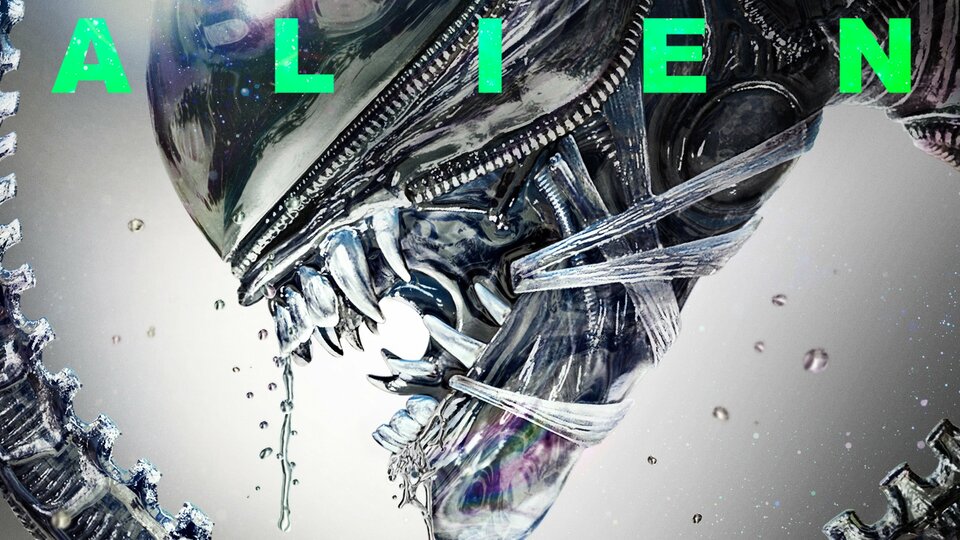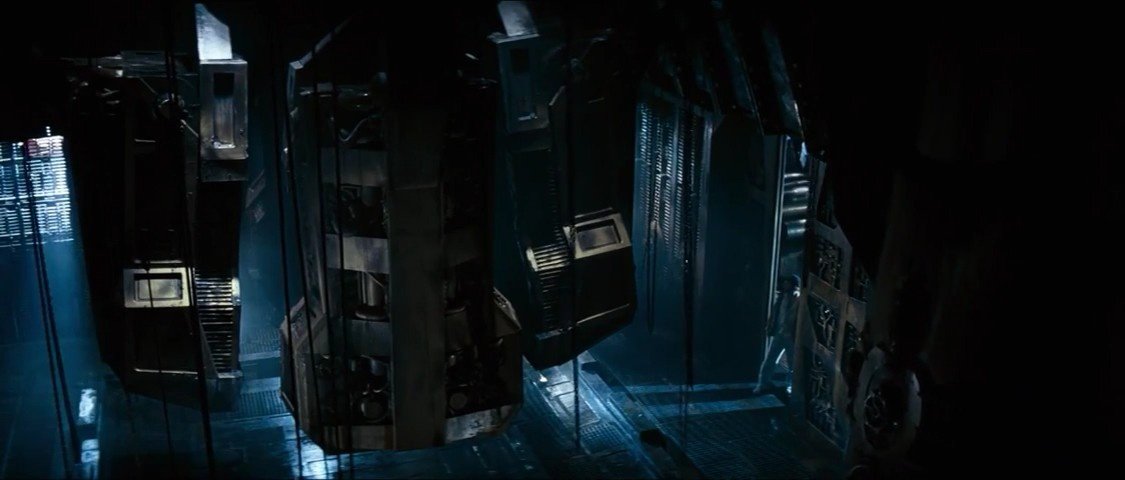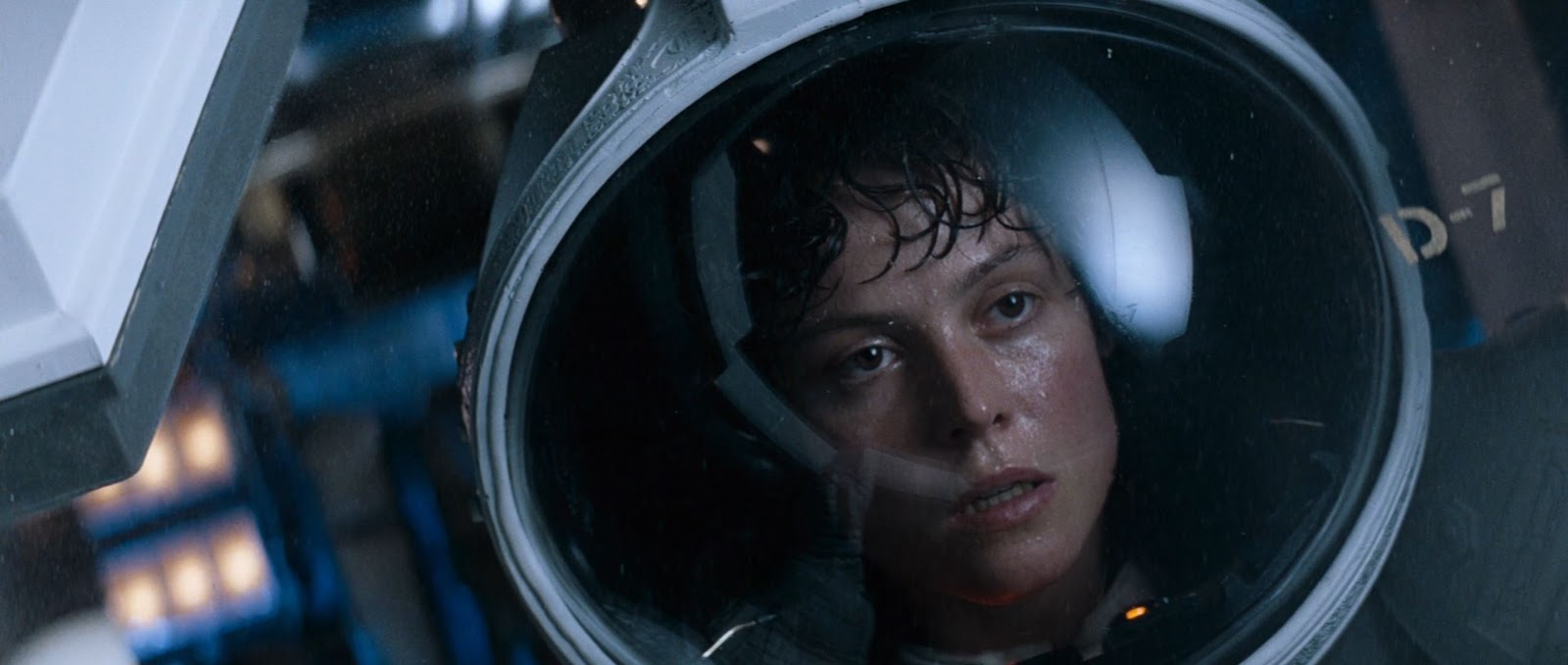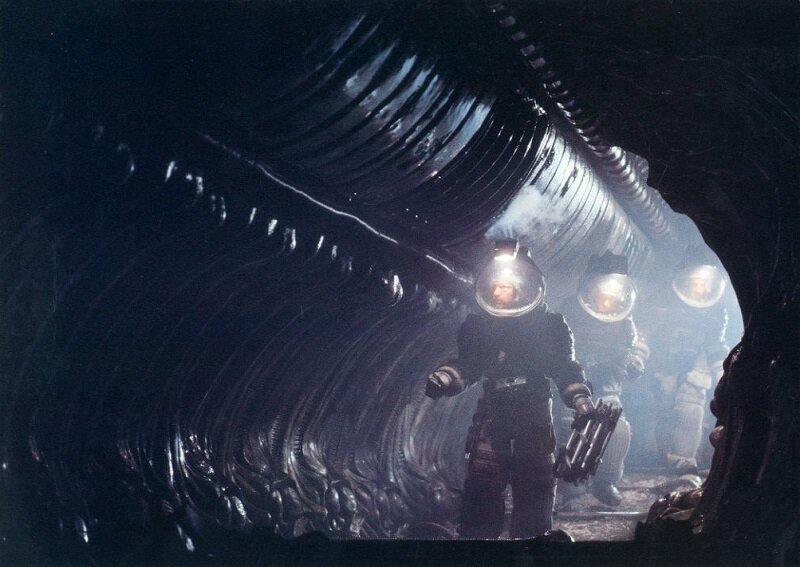𝐀𝐥𝐢𝐞𝐧 𝟏𝟗𝟕𝟗

Alien (1979) is a groundbreaking science fiction horror film that redefined the genre with its atmospheric tension, innovative design, and visceral terror. Directed by Ridley Scott, the film introduces audiences to a terrifying and claustrophobic journey into the unknown, blending elements of survival horror with a deeply unsettling exploration of human fragility in the vast emptiness of space.
Set in the distant future, the story follows the crew of the commercial spaceship Nostromo as they respond to a mysterious distress signal on a remote planet. Upon investigation, they discover a derelict alien spacecraft containing a nest of strange eggs. When one of the eggs hatches, an aggressive parasitic creature attaches itself to crew member Kane (John Hurt), setting off a chain of events that plunges the crew into a fight for their lives. The creature soon evolves into the Xenomorph, a nightmarish predator that stalks them one by one within the confines of their own ship.
Sigourney Weaver delivers a career-defining performance as Ellen Ripley, a character who emerges as the film’s resilient and resourceful protagonist. Ripley’s transformation from a cautious crew member to a determined survivor is one of the film’s most compelling arcs, cementing her place as one of cinema’s most iconic heroines. Her confrontation with the Xenomorph is both harrowing and triumphant, showcasing her grit and ingenuity in the face of insurmountable odds.
The film’s aesthetic is a masterclass in design, with H.R. Giger’s biomechanical creations lending an eerie, otherworldly quality to the alien and its environment. The Xenomorph itself is a masterpiece of creature design, its grotesque and insect-like appearance evoking both fascination and fear. The Nostromo’s industrial interiors add to the film’s oppressive atmosphere, with dimly lit corridors and tight spaces amplifying the sense of isolation and vulnerability.
Alien excels in its pacing, gradually building tension as the crew’s situation becomes increasingly dire. Ridley Scott’s meticulous direction ensures that every scene is steeped in suspense, from the discovery of the alien egg to the infamous chestburster sequence, a moment that has become one of the most iconic and shocking scenes in film history. The use of practical effects and minimal CGI contributes to the film’s timeless quality, grounding its terror in visceral realism.
Jerry Goldsmith’s haunting score complements the film’s ominous tone, seamlessly blending eerie orchestral arrangements with moments of silence that heighten the suspense. The sound design, from the Xenomorph’s hissing to the ship’s mechanical hums, immerses viewers in the unsettling world of the Nostromo.
At its core, Alien is a story about survival, fear of the unknown, and the primal instincts that drive us in life-and-death situations. It explores themes of corporate greed, as the company behind the Nostromo prioritizes the alien specimen over the lives of the crew, and the dehumanization of individuals in the pursuit of profit. These layers of commentary add depth to the film’s narrative, making it more than just a horror story—it’s a reflection on human nature and the consequences of hubris.
Alien has left an indelible mark on both science fiction and horror, spawning a successful franchise that includes sequels, prequels, and spin-offs. Its influence can be seen in countless films and media that followed, but few have managed to replicate the raw, unsettling power of the original. Over four decades later, Alien remains a cinematic masterpiece, a perfect blend of terror and artistry that continues to captivate and terrify audiences worldwide. Its tagline, “In space, no one can hear you scream,” encapsulates the chilling experience of one of the greatest sci-fi horror films ever made.











